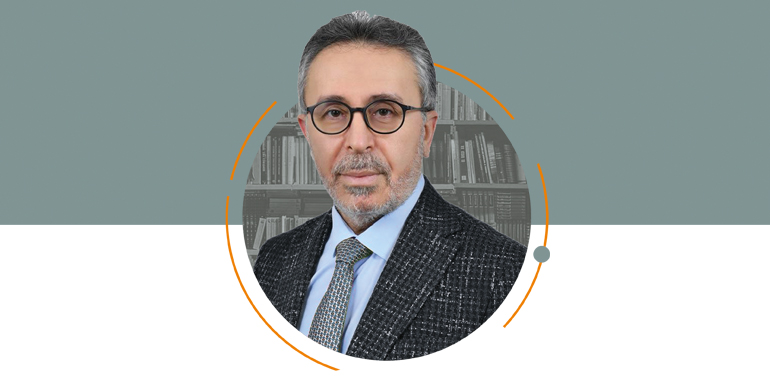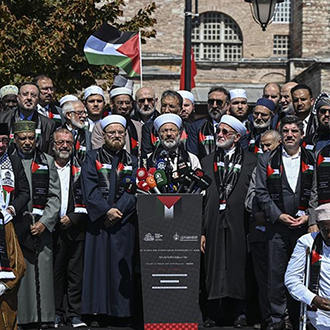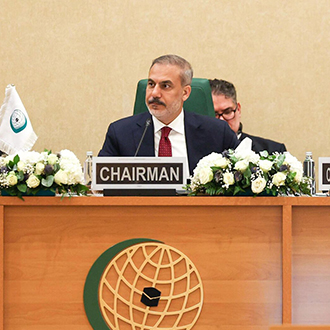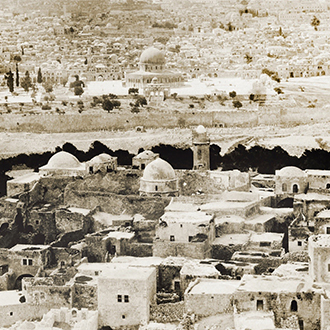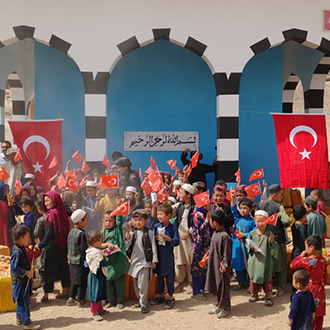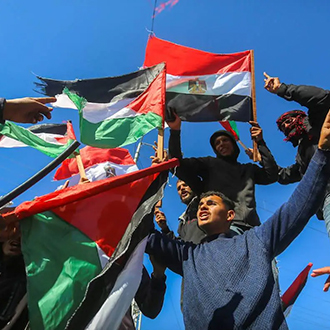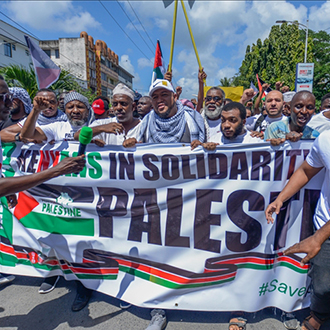He graduated from Marmara University Faculty of Theology (1992), then completed his master’s degree in the Department of Law at the School of Oriental and African Studies (SOAS), University of London (1996) and his PhD in the Department of Middle Eastern Studies at the University of Manchester with his thesis titled “Early Development of Hanafi Usul al-fiqh (Legal Theory)”. In 2005, he was promoted to associate professor and in 2011 to professor. He served as a visiting professor at Harvard University Law School (2007-2008). He was elected as the Turkish representative of the International Fiqh Academy of the Organization of the Islamic Conference (2015). He served as a member of the High Board of Religious Affairs of the Presidency of Religious Affairs (2015-2020). He served as the director of Istanbul University Institute of Islamic Studies (2022-2023). In 2023, he retired from Istanbul University and moved to Istanbul 29 Mayıs University to continue his academic studies. He is still the president of the Center for Islamic Studies of the Türkiye Diyanet Foundation (ISAM). His academic studies have focused on fiqh and usul al-fiqh, especially on Hanafi fiqh. In this field, he has written numerous copyrighted and translated works, book chapters, articles in international and national publications, and encyclopedia articles.
Dear Professor, as you know, Allah the Almighty has created man as the most honorable creation and equipped them with superior qualities. First of all, let us talk about the sublime purposes for which Allah the Almighty created mankind.
In the modern world, one of the issues that we need to think about again and again is the special place of the human being among other beings, as Allah does not use the same terms for any other being as He uses for man. For example, Allah says of man, “I breathed into him from my spirit”. He also describes him as “the most honorable of creatures” in Surah at-Tin. But He also gives him the potential to be the worst of creation. There is the potential of it going both ways. Perhaps we need to go back to the statements in the verses that tell the story of the creation of man. In Surah al-Baqarah, in our Lord’s dialog with the angels, our Lord says, “I will create a caliph”. But the angels were surprised. They say, “O Lord, we glorify you, we sanctify you from all kinds of deficiencies, we worship you, we recognize only you as Lord.” They have no choice, or free will as it is, therefore they just serve. But here our Lord is talking about a being who will serve by choice. The angels wonder, “Lord, what need is there to serve by choice, maybe they will do evil on earth.” Because when they choose, they may choose something else, not servitude. Our Lord points to a wisdom there by saying “I know what you do not know”. So we understand that humans becoming a caliph points to the fact that he is a very special being. I think the secret is to leave the human being free. I mean, of course, we are not referring to absolute freedom. Absolute destiny belongs to Allah. Ultimately, everything is according to the discretion and measure of our Lord. But unlike other beings, human beings are given a limited will and freedom of choice. Human beings already use that ability to choose gradually from childhood. From the age of seven, they start to gradually distinguish between good and bad, right and wrong. When they reach a certain maturity, which we define as the age of maturity, they are able to make their own decisions and choices. The real secret of human existence is that they are free-willed, this is what makes human beings unique.
Can we say that this feature elevates human beings to a sublime level?
Of course, mankind rises because he chooses to serve his Lord. There is a difference between choice and compulsion. Human can rebel, whereas other beings cannot. Again, we can say that human freedom is also related to knowing and knowledge. When Allah the Almighty says, “Prostrate before Adam” (Baqarah, 2:34), He attributes the wisdom of prostration to his knowledge. The verse says, “He taught Adam the names of all things” (Baqarah, 2:31). Allah the Almighty then asks the angels, “Do you know these?” The ability to know is also closely related to human freedom. A human is a being who can first accumulate knowledge and then produce knowledge himself. In other words, he takes the data, the names and the language he has learned from his Lord, and then he produces knowledge from it. Therefore, mankind is different from other beings in this sense. For this reason, the wisdom of human’s existence in this world is to serve by choice. Not just any servitude, but servitude by choice with his free will.
There are characteristics that human beings should have in order to live a life in accordance with the purpose of their creation. When we look at the Qur’an, how does our Lord define a Muslim, what are the personality traits that a Muslim should have?
It is a difficult question, a very comprehensive question. It is necessary to summarize it by underlining some very basic things. Of course, first of all, a Muslim servant means a servant who has submitted. A Muslim servant has surrendered to his Lord. Allah the Almighty defines the prophets as the most superior human beings and when we look at their supplications, the most basic point they emphasize is to surrender to Allah. Servitude is the most fundamental quality that the Qur’an expects from humanity. And all the other qualities are, in my opinion, superfluous. The main thing is that man chooses submission, chooses servitude with his free will. You cannot be a good person in this world without being a servant, hence the condition of being a good human being is to be a good servant. Being a good servant means a person who is aware of the wisdom of behind Allah creating human beings on earth, who recognizes Allah, and turns towards Him. At this point, I do not separate the Muslim personality from the human being. So the Muslim person actually means a human being. Therefore, a Muslim personality would equate to a good servant, a good human being. This is possible by acting in accordance with the will and the nature created by Allah.
But besides that, it is possible to deduce the Muslim personality from the verses of the Holy Qur’an. For example, Allah does not like wrongdoers who make mischief on the earth, who create sedition, who do wrong things, who do injustice to others, and who oppress people. So here we can deduce what Allah likes from what He dislikes. The one who is just, who does not oppress, who does not sow sedition, who does not do injustice to others, who does not violate the rights of others, is a believer. In other words, in addition to the consciousness of servitude, a second consciousness is the consciousness of not being unjust. This consciousness is also frequently highlighted in the Holy Qur’an.
What then are the personality traits that a Muslim should have?
They are also related to these. First of all, we have to look at the Prophet (saw). He was the living Qur’an. The believer needs to be in a role that never offends the people around him, that is always restorative, more of a reformer. In other words, the consciousness of worship needs to infuse his heart. We need to create a personality in which our behavior with people and our duty towards Allah are intertwined. Therefore, the things that Allah the Almighty wants and does not want in the personality of the believer, which are emphasized in the verses, need to be integrated with worship. If a person prays, at the same time he should not do injustice to anyone, he should not create sedition, he should not act in a way that disrupts the affairs of others, he should not try to gain wealth through the rights of others.
Allah the Almighty describes the Prophet as “uswatun hasanah”, meaning “the model of excellent conduct”. Could you tell us about the noble personality of our Prophet, who is a guide and role model for all humanity?
When we talk about the Prophet, we must state very clearly that he was the epitome of morality. Some of the people of Mecca were the greatest enemies of the Prophet (saw), yet they still entrusted their property to him. The Qur’an also states that he was trustworthy and of high morals. The fact that he was someone who was consulted when an arbitrator was needed and that he was fair, all these are prominent characteristics. One of the most important characteristics of our Prophet is that he had a consciousness of worship that encompassed the whole of his life with the consciousness of servitude. When they said, “O Messenger of Allah, your past and future sins have been forgiven, why are you working so hard for worship?”, the Prophet replied, “Should not I be a servant who repents?” This is what is expected of all believers; to love servitude, to internalize servitude. Our Prophet does this very well. He lives the consciousness of servitude at its peak, but at the same time his relationship with people is very good, he can be very fair even to his enemies.
The modern age we live in is described by many as “the age of pleasure and speed”. How do you think we can preserve our Muslim identity in this era of dizzying developments?
The industrial society that emerged with the industrial revolution, scientific revolutions, technological developments, and the transformation of the world into urbanized structures have built a society in which human beings isolate and secure themselves in many areas from health to security. Perhaps for the first time in human history, something like this is happening. In the past, only a small part of human societies used to live like this, and they used to build their cities and create a space there with the means to achieve complete security. Today, people have expanded this area a lot. They have gathered in cities, they have created safe spaces and no one thinks of being a servant anymore. We have created such a world that we have forgotten why we exist in this world. We have forgotten how short the life of this world is and why we came to this world. We cling to this world as if we are going to stay in it forever. I think this kind of environment has caused some damage to our constitution. I mean, this artificial world that we have created has turned into a space that makes us think that we are going to live forever and that we are going to stay young. Instead, we feel like we are in a false paradise, like “it’s all over, I exist in this world on my own”. I think our biggest problem is that in the modern age, this space of security has spread too far. Human beings are increasing these safe spaces with the idea of eternalizing their existence in this world. These false safety zones are taking people away from religion, away from serving Allah. The Holy Qur’an mentions this. When man becomes comfortable, he always forgets his servitude, this is what the verses tell us.
Modern lives have created such false security and we have forgotten our servitude here. We need to carry out some actions in this world to remind us of our servitude. For example, we should not give up amr bil ma’ruf wa nahy an al munkar. We have given up on this, this is one of the biggest diseases of modern societies. In other words, we should not have stopped advising each other, reminding each other of servitude, reminding each other to turn towards Allah, and calling each other to the truth. We need to remind each other of Allah’s commands and prohibitions, we should not give up on this. We must not lose this consciousness. This is one of the most important aspects of preserving our Muslim identity. Of course, we should remind ourselves of this before telling others. This can be done through education. Maybe we need to come together with this consciousness much more. Human beings are social beings after all. We should come together with this concern and read the Qur’an. The purpose of the Qur’an is for us to live the values it says. We need to come together to listen to the message of the Qur’an. We should read it to ourselves, we should read it to receive the message. And for this purpose, we need to support each other.



